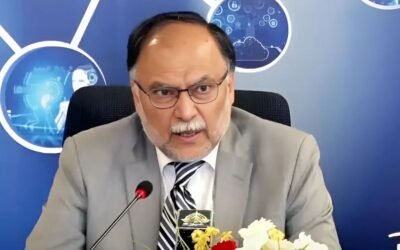The Organisation of Islamic Cooperation (OIC) Contact Group on Jammu and Kashmir convened on the sidelines of the 80th session of the United Nations General Assembly. The meeting, chaired by Assistant Secretary General for Political Affairs Mr. Yousef M. Al-Dobeay, reaffirmed the OIC’s unwavering support for the Kashmiri people’s inalienable right to self-determination as enshrined in UN Security Council resolutions.
The meeting brought together foreign ministers and senior officials from member states of the Contact Group, including Pakistan, Saudi Arabia, Türkiye, Niger, and Azerbaijan. A delegation representing the Kashmiri people was also in attendance. The group reviewed the current political, security, and human rights situation in Indian Illegally Occupied Jammu and Kashmir (IIOJK).
Meeting of the OIC Contact Group on Jammu & Kashmir on the Sidelines of 80th Session of the United Nations General Assembly held on 23 September 2025 in New York Joint Communique’https://t.co/j1t9LOB7jd pic.twitter.com/CJNGs2pdmA
— Ministry of Foreign Affairs – Pakistan (@ForeignOfficePk) September 24, 2025
Concerns Over Human Rights and Regional Stability
During the session, the group expressed deep concern over the deteriorating human rights conditions in IIOJK, particularly since August 2019. The participants condemned the use of draconian laws, repression, arbitrary detentions, and India’s attempts to alter the demographic composition of the occupied territory.
Syed Tariq Fatemi, Special Assistant to the Prime Minister of Pakistan, thanked the OIC and its member states for their steadfast support for the Kashmiri people. He reiterated Pakistan’s commitment to peace and stressed that lasting stability in South Asia is contingent on a final settlement of the Jammu and Kashmir dispute through genuine dialogue in accordance with UN Security Council resolutions and the aspirations of the Kashmiri people.
Welcoming the Ceasefire and Urging Dialogue
The OIC Contact Group also welcomed the recent ceasefire agreement between Pakistan and India, which was mediated by the United States following four days of clashes in May. The group appreciated the “constructive efforts” by all countries that helped bring the two parties to the negotiating table.
While commending this de-escalation, the group stressed that a permanent peace in the region remains tied to a just resolution of the Jammu and Kashmir dispute. It urged India to take immediate steps to end the repression, release all political prisoners, repeal restrictive and draconian laws, and allow the Kashmiri people to exercise their fundamental right to self-determination.
A joint communique was formally adopted by the Contact Group, solidifying their unified stance on the matter. The meeting concluded with a call for renewed international efforts toward an early and peaceful resolution of the dispute.
You May Like To Read:




























